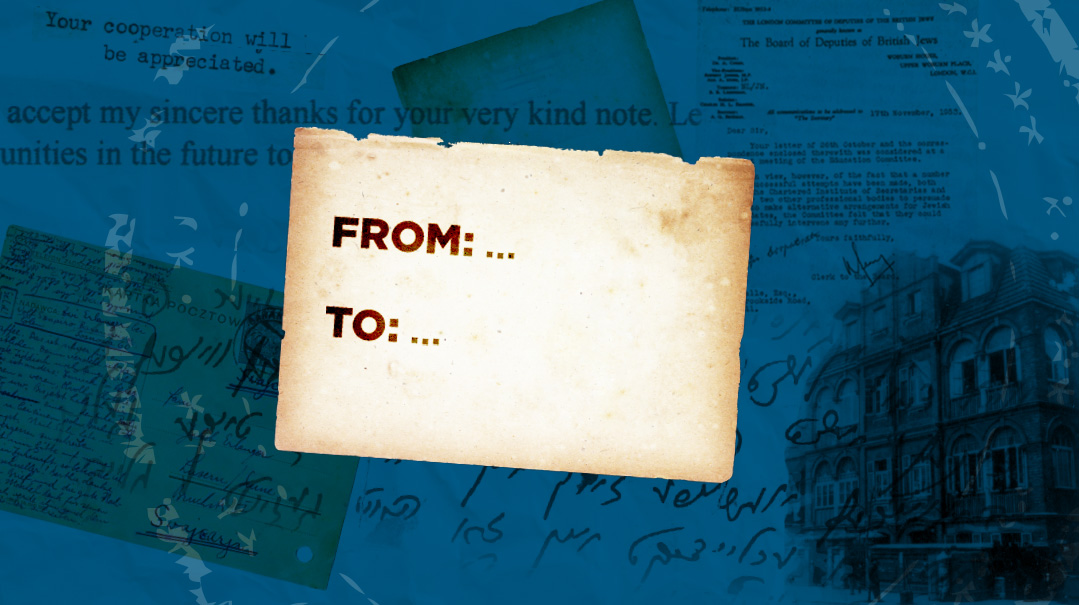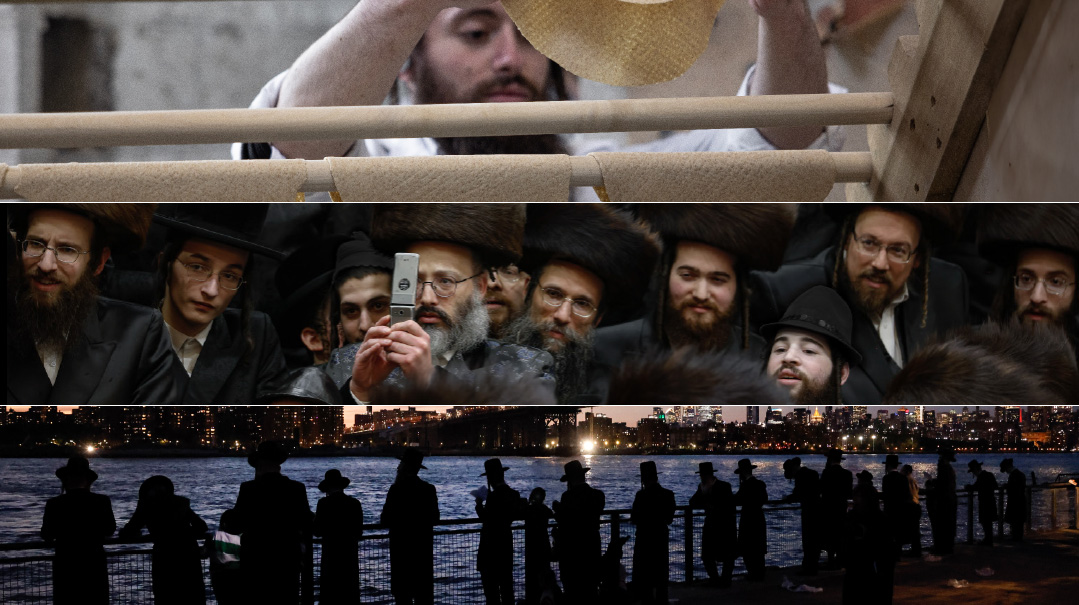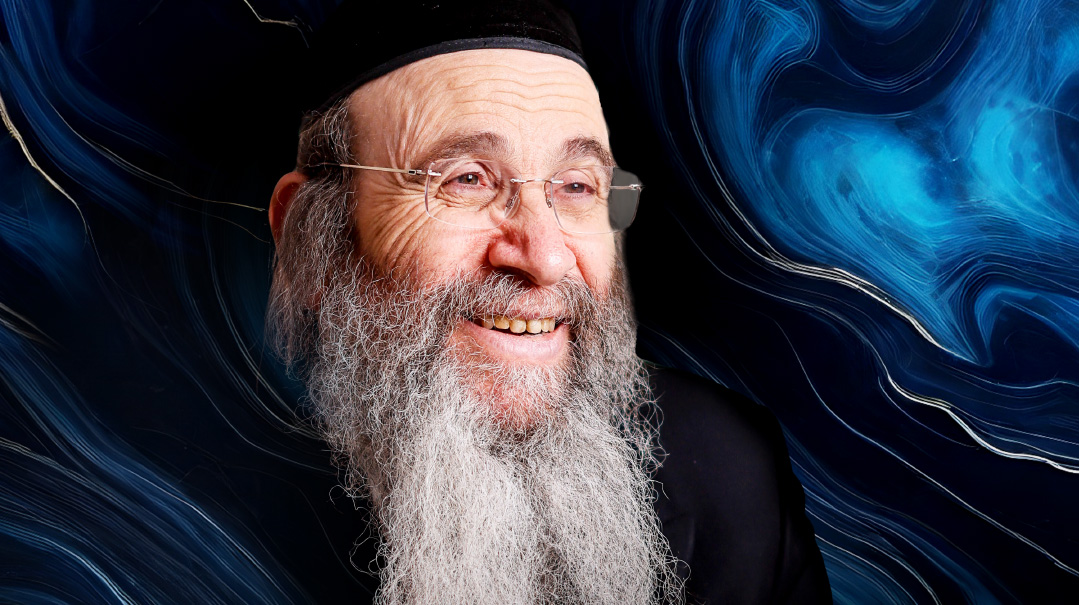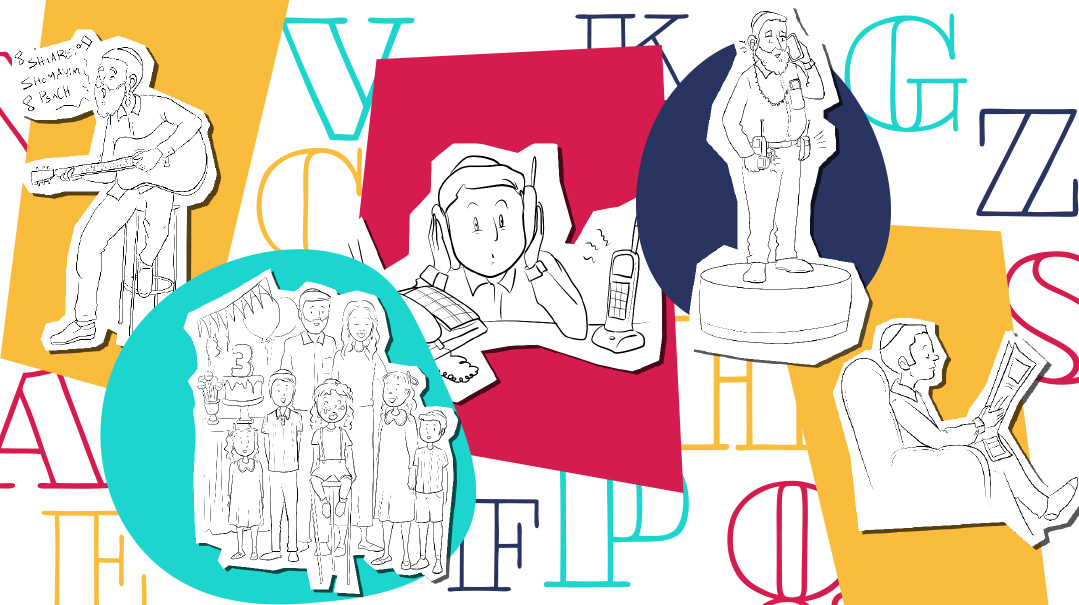Fighting a One-Man War
| March 5, 2024Michael Freilich, the only Jew in Belgium’s parliament, stands alone facing this wave of anti-Israel sentiment
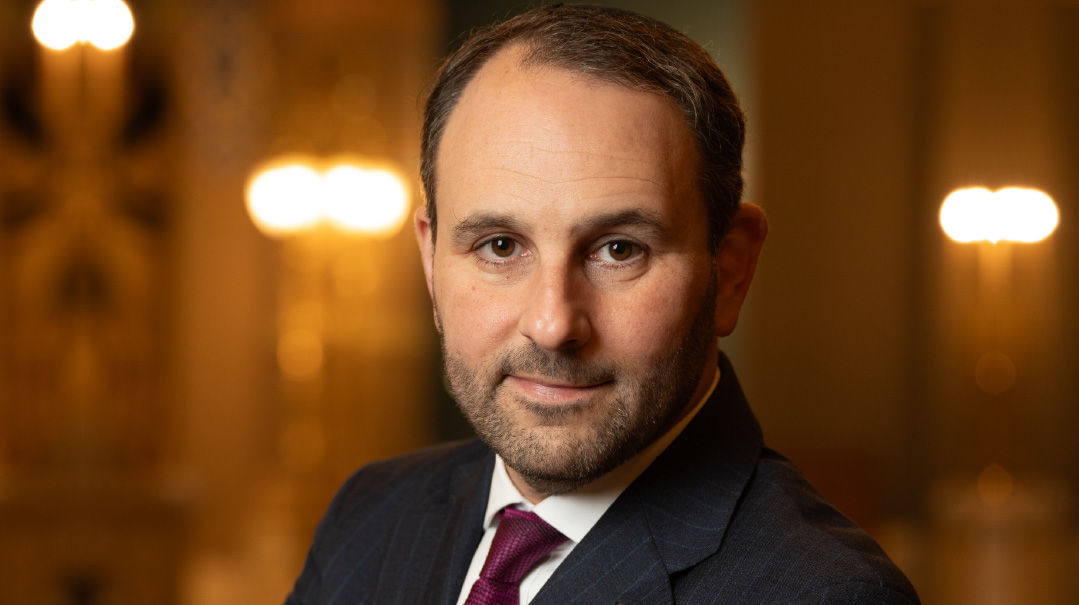
“All the wells are poisoned,” says Belgian MP Michael Freilich, an Orthodox Jew who has been waging a solitary battle for Israel since the October 7 terror attacks. As Brussels has crossed every possible diplomatic red line, going so far as to ban the airing of videos of the massacre, he stands alone in an uphill struggle, making the case for a country fighting for its life
ON
Simchas Torah morning, as Jews in Antwerp prepared for Yom Tov davening, a non-Jewish aide knocked on the door of Belgian parliament member Michael Freilich and told him the devastating news: Thousands of terrorists had invaded the State of Israel and were massacring whole towns.
“I was in utter shock,” Freilich tells Mishpacha.
At that moment, Freilich had no idea how much his life would change. His public life as a member of parliament was at a tipping point.
“After the news sank in,” Freilich relates, “I headed for the home of Rav Pinchas Leibish Padwa, the rav of Antwerp’s Shomrei Hadas community. I got his permission to do something I never dreamed I’d have to do — send an urgent message, on Yom Tov, to Prime Minister Alexander De Croo, asking him to immediately increase security for the local Jewish community.”
Since that dreadful day, he has become a prominent media voice in Belgium on Israel’s war effort — a complex task. Since the war broke out, Belgium has been one of Israel’s most problematic arenas for diplomacy. The Belgian parliament and government have issued statements in line with hostile Arab nations. Prime Minister De Croo stood on Egypt’s border with Rafiach and declared: “There was a massacre, of course, but the State of Israel must not kill women and children…”
Later, Belgium would cross every possible diplomatic line with Israel. Jerusalem’s ambassador to Brussels was summoned for a dressing down following claims that the IDF had bombarded a Belgian installation in Gaza; the lower house of parliament would forbid the airing of videos from the Simchas Torah massacres; and senior state officials would call for sanctions on Israel, no less.
Michael Freilich, the only Jew in Belgium’s parliament, stands alone facing this wave of anti-Israel sentiment, fighting a one-man war for the truth.
“Since the Simchas Torah attack,” he says, “I get invited to speak on panels on prominent news shows, and I’m the only one making the case for a country fighting for its life. It’s not easy. It often feels like it’s just me against everyone else.”
Freilich, a member of Belgium’s right-wing New Flemish Alliance (N-VA in Flemish), gets some sympathy from members of his party — but he finds that it only extends so far. “They often look at the issue a different way. Sometimes they get angry at me. But I’m not deterred.
“When I’m presenting the side of the Jewish People and the State of Israel, I keep the image of my grandfather in my mind’s eye. He was expelled from Antwerp by the Nazis when he was a boy. Now I feel an obligation to him to represent the Jews in the parliament of this country that he left in our people’s darkest days.”
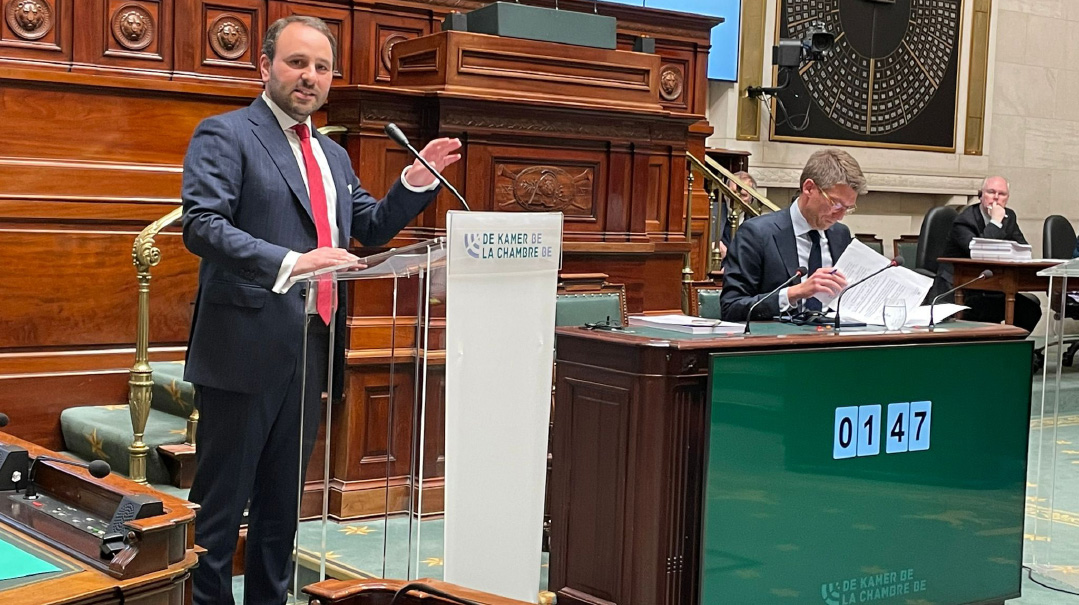
Turnabout
Freilich, 43, is a frum married father of four and editor in chief of Joods Actueel, the Flemish-language magazine of Belgium’s Jewish community, founded by his grandfather.
Israel came to hold a special place in his heart 24 years ago, when he went there to study at Jerusalem’s Machon Lev.
“It was a difficult period,” he relates. “Israel was going through the Second Intifada. Horrific terror attacks were happening almost every day. The mood was very dismal.”
Then, as now, other countries managed to find fault with Israel, even though it was on the receiving end of a murderous wave of terror. Ariel Sharon, then prime minister, wanted to visit Belgium, but anti-Israel activists filed a suit against him in local courts accusing him of “war crimes,” with the aim of getting his visit canceled. That tactic gave Freilich an idea.
“After that,” he says, “I fundraised $50,000 to finance a lawsuit against Yasser Arafat, to try to prevent an actual terrorist from coming to Belgium. This made the politicians here very nervous. That was the moment they realized that any world leader who wanted to visit Belgium might suddenly face a lawsuit. They quickly passed legislation to limit the possibility of imposing entry bans on any specific person. The end result was that Sharon was able to visit Belgium.”
When the 9/11 attacks struck the US, Freilich, still in Israel, was inspired to organize a solidarity trip of Israeli terror survivors to America. “I gathered Israelis who had been injured in terrible attacks and brought them to Washington. We wanted to show Americans that the citizens of Israel understood the ramifications of terrorism. I remember that an ABC News interviewer struggled for words when faced with the tragedy that Israel was enduring.
“The Americans were also very curious to know how Israel fought against terror. Until then, they had had no direct exposure to this reality, and they wanted to understand how Israel coped with it.”
Freilich was developing an interesting talent stack; his growing international visibility as an Israel advocate, combined with his fluency in Flemish — unusual among Belgium’s frum community — gave him access to a wider audience. Around the time of Ariel Sharon’s disengagement from Gaza, as Israel was being rent asunder by the debate, Freilich asked his grandfather, the publisher of Joods Actueel, for the opportunity to present his on-the-scene impressions to Belgian readers.
His grandfather agreed — and Freilich ended up becoming a staff writer, continued in that role even after he returned to Belgium. He would eventually become the publication’s editor — a platform that made him the Jewish community’s de facto ambassador to the wider Belgian public.
“The Jewish community in Belgium is not so assimilated — most do not even speak Flemish,” he says. “Because I speak the language, and because of my role as a journalist, I became the go-to spokesman for local media outlets whenever they needed someone to explain our community’s view, or Israel’s stance.”
That led to a memorable appearance on a news panel show, after the Turkish ship Mavi Marmara tried to breach an Israeli naval blockade of Gaza. After that incident ended with the deaths of nine passengers, Freilich found himself in a debate with Belgium’s then–foreign minister Louis Michel. The back-and-forth over Middle Eastern history suddenly took a strange turn — but Freilich was able to think on his feet.
“During our argument, Michel switched tracks and tried to make it personal with me. I refused to accept that. I paused for a moment and said, ‘You’re speaking from emotion, while I’m speaking facts.’ It was a big moment.”
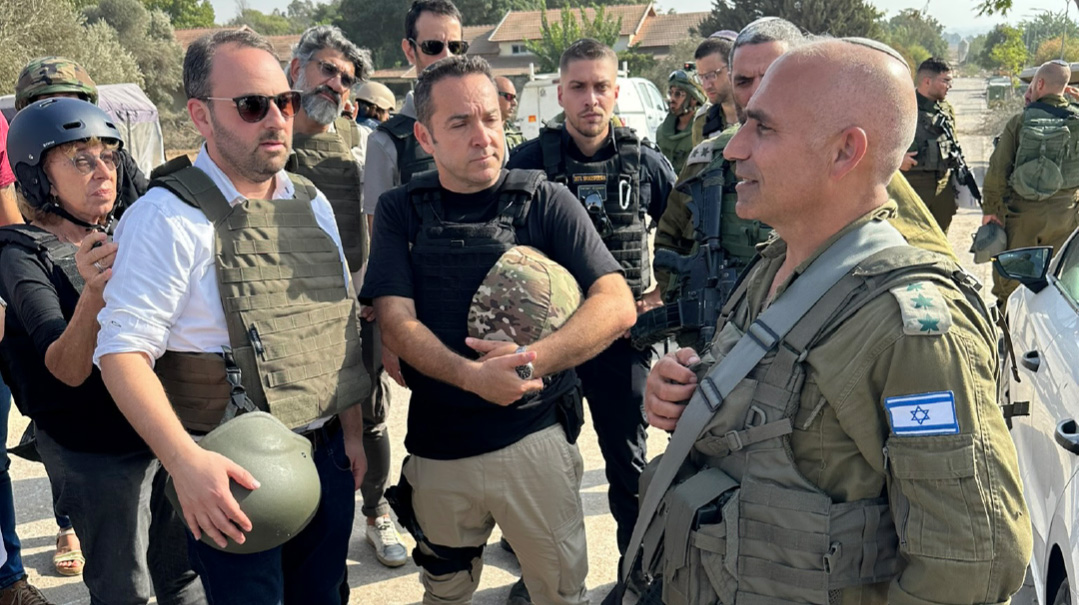
In the Spotlight
Freilich’s role in public advocacy led to an invitation to join the N-VA. It came after he conducted an interview for Joods Actueel with party leader Bart De Wever, now the mayor of Antwerp.
“When we finished our interview, he surprised me by offering me a place in his party,” Freilich recounts. “ ‘We are looking for a Jew in our party,’ he told me. I promised him I’d consider it.”
Although the N-VA is a Flemish nationalist party seeking the eventual peaceful secession of Flanders from Belgium, Freilich found kindred spirits in the right-wing party concerned about immigration, Muslim extremism, and terrorism.
Not long after joining the party, he ran for parliament in the Antwerp district and was elected to Belgium’s Chamber of Representatives, the lower house of parliament, in 2019.
“The campaign was intense, and in the end we got 30,000 votes,” he says. “This is considered very good, a lot of votes for a district like Antwerp.”
The results were even more telling in that Freilich had to rely on votes from outside the Jewish community. Although there are about 20,000 Jews in Antwerp, more than half are ineligible to vote; either they are below voting age, or they do not hold Belgian citizenship.
“According to my estimates, I only got about 5,000 or 6,000 votes from local Jews,” he says. “All the rest came from non-Jews. They supported me because of my policies and my name recognition. I presented myself as the candidate of religious people in general, not just Jews. That is something very lacking here, because most of the Belgian population is secular.”
Freilich concedes that it’s not always easy being the lone frum Jew in Belgium’s parliament. But it’s a burden he’s proud to carry. “It’s important to understand that there are people of all kinds here. I am proud to be the only Shabbos-observant individual to have ever served in the Belgian parliament, with all that entails.”
He is also very cognizant that his Jewishness puts him in a unique public spotlight. “One of the most complicated parts of my job is representing the Jewish community to the local population. I see it as a personal mission to make a kiddush Hashem and show how a Jewish elected official acts.”
Freilich was handed a golden opportunity in this regard not long after assuming office. He was catapulted into national headlines when he exposed a corruption scandal in Belgium’s postal services.
The national postal service, Bpost, had been partially privatized; but to win a tender to continue to provide the country’s postal services, Bpost management worked out a scheme with members of parliament that would be lucrative for all concerned. When Freilich uncovered the deal, he blew the whistle. Bpost’s CEO was forced to resign, and police raided the offices of senior state officials. Media outlets covering the story featured Freilich prominently.
Despite all the accolades Freilich has won as an elected official, he maintains a modest air on the prospects of his reelection in the upcoming June 2024 vote.
“The polls fluctuate,” he says. “Sometimes I’m up, sometimes I’m down. For now, things seem pretty good, but you always have to work to gain votes.”
The N-VA currently sits in the opposition in the Belgian parliament, and polls show it could become the second-largest party after the June elections. Freilich is optimistic — both about his party’s chances, and about what it could mean for Belgium’s relations with Israel.
“We have a good name,” he says. “Voters are moving to the right. People are concerned about all the migrants that have come to Belgium. It would also be very good for Israel if the current government — which is very left wing and anti-Israel — lost the election.”
Freilich is frank about his desire to win a large number of votes in his reelection campaign. “The need to win the largest number of votes possible is not only so that I can be reelected to parliament. It also has to do with the way I will be treated after elections. If I get more votes, I will have more power and status in the party to benefit the public that I represent. That will also make it possible for me to get a ministerial position, if the party enters the governing coalition.”

From All Sides
Freilich sees his high public profile as critical to the security of Belgium’s Jewish community. He has already used his position to combat anti-Semitism during the current Gaza conflict, but he has also shown savvy in going about it.
“After the October 7 massacre and the outbreak of the war, I made sure to bring a rabbi to the Belgian parliament, along with a Muslim imam and a Christian priest. My goal was to show that conflicts taking place outside the country don’t have to poison the atmosphere here at home.
“It’s important to understand that 10 percent of Belgium’s population is Muslim. Of course, not every Muslim is anti-Semitic, but there is no small number of anti-Semites among them. Anti-Semitism exists also in other local non-Jewish communities. Since I took on this job, I am working to make combating anti-Semitism a condition for the coalition agreements.”
Anti-Semitism is a daily reality for the Jews of Belgium, as Freilich testifies: “There are constant anti-Semitic incidents. For the most part, they are verbal. In Brussels, there are almost no Jews, and there, the situation is more problematic. In Antwerp, the Jewish community lives in a concentrated, self-contained area. The government provides security, and over the years I have made sure to expand that, so the feeling here is relatively safe.”
Anytime Israel is in the news, Freilich says, Belgian Jews expect an uptick in harassment. “But the wave of anti-Semitism that has erupted during the current war is unprecented, on a level we’ve never seen before.”
And as a highly visible member of the Jewish community, Freilich himself is not immune.
“I get lots of harassment,” he says. “A professor in a university wrote about me recently that I’m racist, and he called me a Nazi. But I’m not afraid.”
If anti-Semitism wasn’t enough, the Belgian Jewish community also faces other serious threats against its way of life — mainly in the form of government restrictions on kosher shechitah and bris milah. Regional legislatures in Belgium passed anti-shechitah measures in 2022, which were appealed by Jewish and Muslim groups, all the way to the European Court of Human Rights. That court rejected the appeals on February 13 — ending hopes for continued kosher slaughter in most of Belgium. Only in the city of Brussels, the capital, will it be permitted.
“The groups that led the battle against kosher shechitah are animal rights organizations,” Freilich says. “We can continue slaughtering in Brussels, because of the political clout of the Muslims, who have their own needs. And we’re allowed to import kosher meat from outside Belgium. But the problem is, if such a law is allowed to stand in Belgium, it could move on to other countries, and later they might pass additional laws that restrict the Jewish way of life.”
The shechitah ban pales in significance next to the problem being faced by Belgian Jews on bris milah. A government ethics committee issued a non-binding recommendation in 2017 that milah be outlawed in Belgium. Since then, anti-milah activists have been conducting a vocal campaign that has reached the highest levels of the Belgian government. One activist sent a letter to Paul Van Tigchelt, Belgium’s justice minister, listing all of the country’s mohalim, claiming none of them are licensed to perform what he called a dangerous medical procedure. Van Tigchelt declared his intentions to study the issue.
Although many consider a ban on bris milah farfetched, Freilich is taking nothing for granted.
“The plan that I am drafting right now includes making the role of mohalim official in Belgium, so that they learn the subject under the Rabbinate, and then get a certificate of sorts allowing them to engage in bris milah,” he says. “I plan to act on a number of other fronts as well, including making an appeal to the German government, requesting that it exert its influence on the Belgain government in this matter.
“A ban on bris milah might be perceived as a remote danger,” he stresses, “but the Jewish community in Belgium did not believe that shechitah would be banned — and it has happened.”
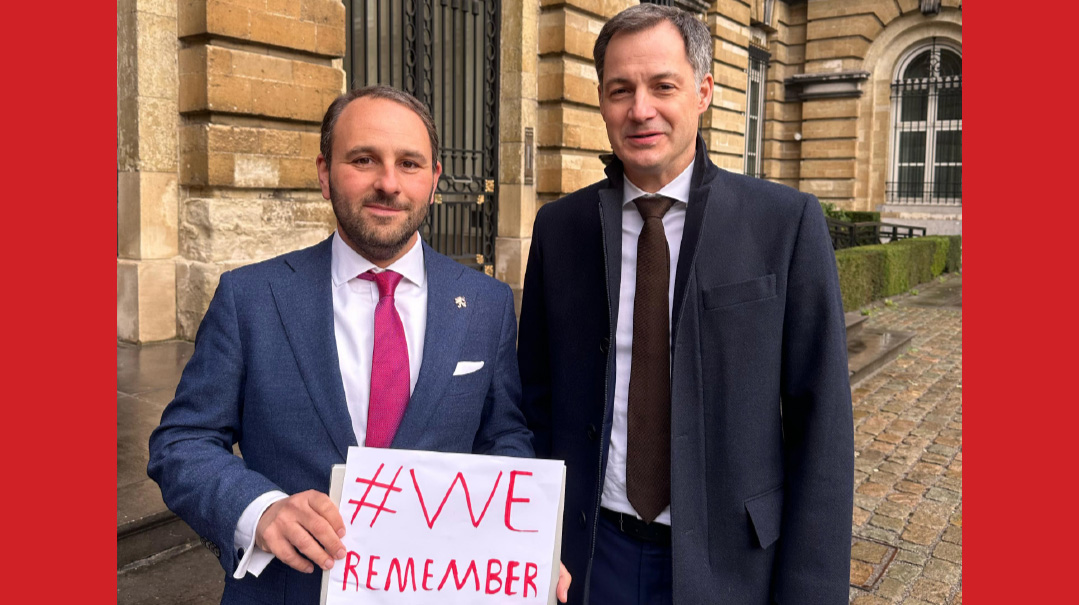
Small Wins
Michael Freilich’s work as Belgium’s local one-man hasbarah machine keeps him constantly on guard. He admits the attitudes he is up against sometimes seem to powerful to overcome.
He recounts a recent episode in which he brought in a group of Israeli families of hostages being held by Hamas, to give a press conference and raise awareness of the captives’ plight. But for all the public relations savvy he has honed over the years, he was unprepared for the turn the press conference took.
“If we thought the event would benefit Israel and bring attention to the painful story of the hostage families, we were taken aback to discover that even with this, the Belgian media found a way to excoriate the families and Israel,” he says, shaking his head. “The media spin was that the arrival of these families was a way to cover up the question of why Israel is ‘murdering’ thousands of civilians in Gaza.
“The situation is so awful here that at a meeting I attended at the Simon Wiesenthal Center, I told those present, ‘The whole well here is poisoned.’ People drink the anti-Israel claims in the media all day. And even if we try to explain things, however gently — they are hardly accepted.”
But perhaps nothing has appalled Freilich more than the discovery that Belgium does not classify Hamas as a terrorist organization, allowing it to operate freely in the country. Freilich sent a query on this subject to justice minister Paul Van Tigchelt, who confirmed that Hamas uses various shadow companies to collects money for “humanitarian aid for the Palestinians.”
“I asked the justice minister, ‘How can they operate in Belgium?’
“And the answer I received is horrific: ‘We are a neutral country, and therefore Hamas can collect money here, as long as a judge does not ban it.’
“That’s a lie, of course,” Freilich clarifies, “because every terrorist organization other than Hamas is forbidden to collect money in Belgium.”
Against this dismal backdrop, Freilich tries to celebrate the small success stories.
“Just recently, a parliament member stood in the parliament foreign committee and accused Germany of always favoring Israel because of its guilt over the Holocaust.
“Then she added, ‘Where is the statement “never again” when it comes to Israel’s “holocaust” against the Palestinians?’
“After this serious incident, I made sure to contact the German ambassador and the German media to update them about her words. When Berlin demanded an explanation from Brussels, she was forced to issue a clarification.”
For now, Michael Freilich hopes to celebrate larger victories against anti-Semitism, after the June elections. From the look of things, there is a long way to go before Belgium can be considered hospitable to Jews.
(Originally featured in Mishpacha, Issue 1002)
Oops! We could not locate your form.



